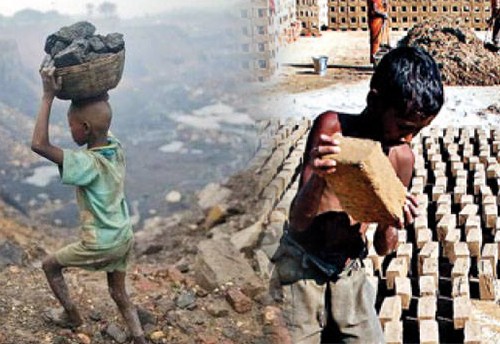Comments of some organisations on Child Labour Amendment Bill ill founded, asserts Labour Ministry
Updated: Jul 28, 2016 10:38:28am

Comments of some organisations on Child Labour Amendment Bill ill founded, asserts Labour Ministry
New Delhi, July 28 (KNN) The Ministry of Labour and Employment has expressed serious concern over comments of some organisations on some provisions of the Child Labour (Prohibition and Regulation) Amendment Bill, 2016, passed by the Parliament on Tuesday this week.
It said such comments were ill-informed and misleading reflecting inadequate understanding of the provisions and implications of the original, The Child Labour (Prohibition and Regulation ) Act,1986 and of the Amendment Bill,2016.
Those comments have created an impression that the Amendment Bill,2016 allows for the first time employment of children of below 14 years of age in family enterprises while no such provision was there in the original Act of 1986, there by adversely impacting their schooling and learning. The fact of the matter is that Section (3) of the original Act of 1986 while prohibiting employment of children in certain occupations only provides clearly that “nothing in this section shall apply to any workshop where in any process is carried on by the occupier (owner) with the aid of his family or to any school established by, or receiving assistance or recognition from, Government”. This goes to prove that the original Act of 1986 clearly allowed children to be employed or engaged in all kinds of family enterprises without any restrictions, said the Ministry.
The Ministry said there is no provision at all in the original Act prohibiting children from being employed or engaged in family enterprises including hazardous occupations and even during school hours. On the contrary, while stipulating that Children of 14 years of age should not be employed between 7 p.m and 8 a.m (Section 7), the original Act of 1986 exempted family enterprises and schools from the applicability of this provision. This exemption, read in conjunction with the provisions of the original Act of 1986 granting blanket permission for engaging children in family enterprises without any references to school hours, has the potential for children to be allowed to work in family enterprises round the clock, severely impacting their schooling, learning and health.
The Amendment Bill, 2016 on the contrary clearly stipulates total and complete prohibition on employment of children below 14 years. However, taking into consideration the socio-economic conditions prevailing in the country and the prevailing practice in many parts of the world where the children help in their family enterprise, the Amendment Bill provides that children can help their families only in non-hazardous occupations and that too only after school hours or during vacations, there by restricting engagement of children in family enterprises. This clearly ensures their schooling as per the provisions of the Right to Education Act, 2009. Due care has been taken to ensure that this help is not at the cost of the education of the child.
While the original Act prohibited children from being employed only in certain occupations, the Amendment Bill prohibits their employment in all kinds of occupations.
Going beyond protecting the interests of children of 14 years of age including ensuring their right to education, the Amendment Bill,2016 offers protection for the first time to adolescents in the age group of 14-18 years by prohibiting their employment in hazardous occupations and permitting their engagement in only certain occupations to be specified in due course.
The Ministry said, “The Amendment Bill, 2016 provides for very stringent provisions for the enforcement as against the original Act. Any violation of the rights of children is made a cognizable offence under which a person accused of violation could be arrested without any arrest warrant while such a violation under the original Act was only a non-cognizable offence under which permission of a Magistrate is required to arrest an accused. District Collectors are made responsible to enforce the provisions of the amended law while it was left to only Inspectors under the original Act. Stringent penalties are proposed in the new law by doubling the period of imprisonment and fines for violations.”
Regarding the list of hazardous occupations/processes, it is clarified that the list of 18 occupations and 65 processes mentioned in the original Act is not a list of hazardous practices but only a category of certain occupations/ processes in which employment of children is prohibited. The Amendment Bill on the contrary, expanded the scope of prohibition to all occupations/processes for children below 14 years of age. In respect of adolescents, the Amendment Bill indicates a Schedule of 3 broad categories of hazardous occupations/ processes which would be elaborated/ expanded in due course.
While there was no provision at all in the original Act for rehabilitation of children rescued from prohibited employment, the Amendment Bill specifically provides for a Rehabilitation Fund for the benefit of both the children and adolescents. Remittances to this fund which includes fine collected from violators and contribution from States at the rate of Rs.15000/- per child and adolescent will be used for their welfare including education.
The provisions of the Amendment Bill, 2016 are hence meant for protecting the interests including the right to education of the children below 14 years and of adolescents of 14-18 years age in a more focused, rigorous and stringent manner. Such comments based on inadequate understanding of the provisions and implications of the original Act of 1986 and the Amendment Bill, 2016 could mislead the people and needs to be avoided”. (With PIB Inputs)












